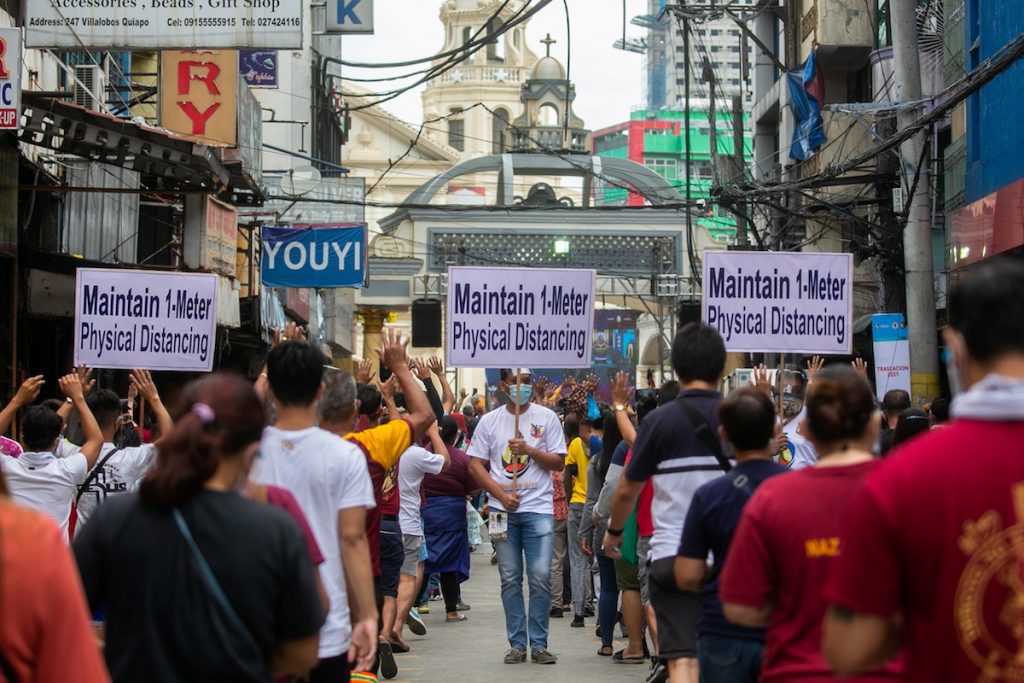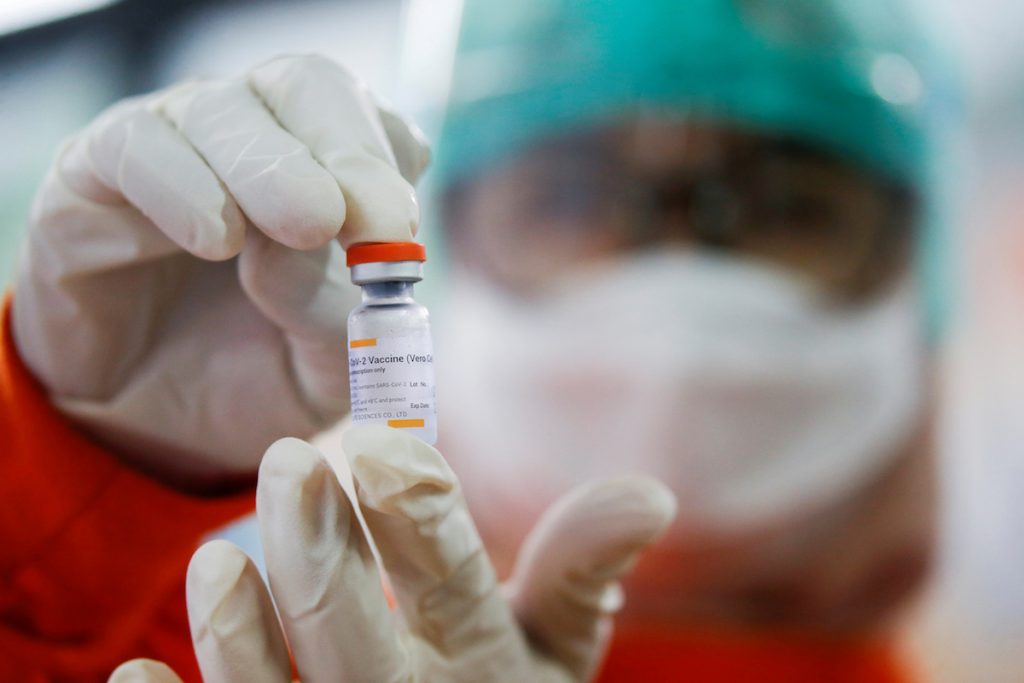The Catholic Bishops’ Conference of the Philippines has expressed support for the government’s efforts to acquire COVID-19 vaccines and for prioritizing poor communities in its deployment.
“We especially commend our national government for considering the poor in our national vaccination program,” read a pastoral statement issued by the Office on Bioethics of the bishops’ conference.
The country’s church leaders said the poor, who are “beloved of the Lord,” should be protected “because their poverty makes them vulnerable to infection and severe disease.”
The bishops said the vaccines will only be able to end the pandemic if enough people are vaccinated, “so we urge all of our people to be immunized when the vaccines arrive.”
“We therefore support the efforts of our national government to procure and to deploy these vaccines in our country,” said the prelates as they thanked private organizations who supported the government’s efforts.
The pastoral statement dated Jan. 8 was signed by Bishop Ricardo Baccay, chairman of the bishops’ Office on Bioethics, and endorsed by Archbishop Romulo Valles, president of the conference.
The church leaders also urged the government to commit to a single vaccine distribution plan that will prioritize medical frontliners and those who are most at risk.
“It would be a moral tragedy if young, healthy company employees who are at low risk for the disease are immunized before our doctors, nurses, and other frontliners, and before our senior citizens who are at higher risk for illness,” read the bishops’ statement.
Freedom to make moral decisions
The prelates, meanwhile, reminded that the Catechism of the Catholic Church teaches that everyone has the right “to act in conscience and in freedom so as personally to make moral decisions.”
“He must not be forced to act contrary to his conscience,” said the bishops, adding that they recognize the right of individuals “to choose to be vaccinated or not.”

The church leaders said they are also raising an “ethical concern” after learning that some of the COVID-19 vaccines were manufactured using cells obtained from the remains of an aborted female fetus who was killed in 1973.
“The perennial teaching of the Church must be repeated: Deliberately procuring abortion, even if it is for the purpose of obtaining material for vaccines, is morally unacceptable,” they said.
“The end does not justify the means; otherwise, the most inhuman and inhumane acts would be permissible in order to attain supposedly ‘worthwhile’ ends,” read the prelates’ statement.
In October 2020, the bishops’ conference issued guidelines that urged the government “to prioritize vaccines that were developed without the use of the morally controversial cell lines.”
The Vatican, meanwhile, explained that “when ethically irreproachable COVID-19 vaccines are not available … it is morally acceptable to receive COVID-19 vaccines that have used cell lines from aborted fetuses in their research and production process.”
Scramble for vaccines
In a television broadcast on Jan. 13, Philippine President Rodrigo Duterte said the country is at the tail end of the queue for coronavirus vaccines as rich countries have already cornered most of the supplies.
“We have money, but it’s in the bank. The problem is that rich countries bought all the supplies. There’s a scramble [for vaccines] now,” said the president, speaking partly in Filipino.
He said procurement laws have not made it easy for the country to get vaccines, but he said the government had already talked with a Chinese firm from which the government would buy vaccines.
In September, Duterte slammed pharmaceutical companies, particularly those in Western countries, for asking for advance payment for COVID-19 vaccines still under development.

In November, he changed his mind, allowing concerned government agencies to enter into advance market commitments with private vaccine developers and make advance payments.
New COVID-19 variant
Meanwhile, Philippine health officials announced that the new COVID-19 variant, known as the United Kingdom (UK) COVID-19, has already reached the country after samples from a Filipino who arrived from the United Arab Emirates on Jan. 7 yielded positive genome sequencing results.
The Department of Health, however, said on Jan. 14, that the “very close contacts” of the person remain have no flu-like symptoms to date.
The department urged the public to continue complying with minimum health standards such as wearing of face masks and shield, proper disinfection, and physical distancing.
The government has earlier restricted the entry of foreign nationals from 33 areas to prevent the entry of the new COVID-19 variant in the country. Filipino citizens, however, are allowed to enter but they are required to complete a facility-based 14-day quarantine despite negative test results.
On Jan.13, the country has recorded 492,700 COVID-19 cases with 458,523 recoveries and 9,699 deaths.






